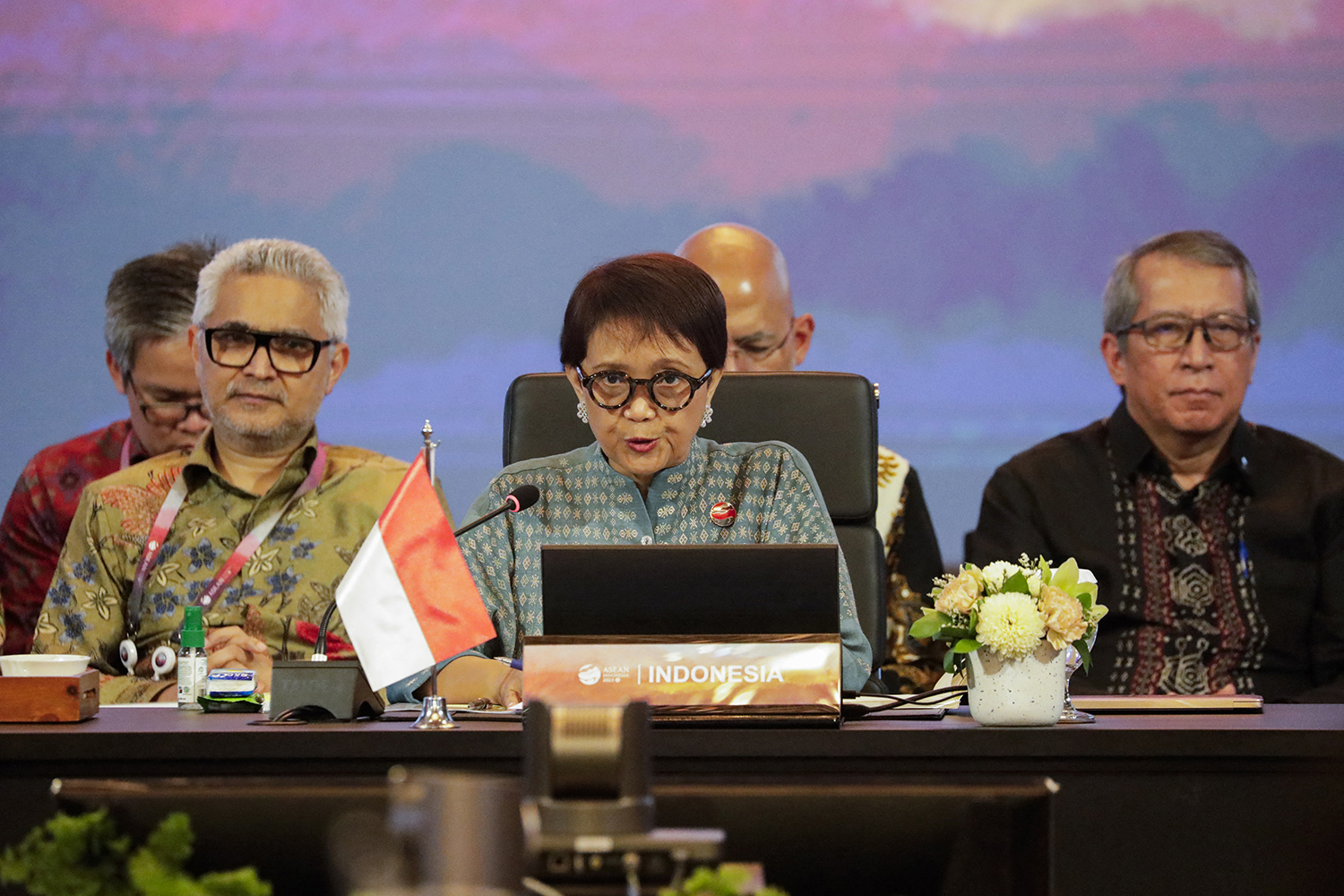Myanmar Crisis: A Critical Analysis Of Britain And Australia's Selective Sanctions

Table of Contents
The Nature of Britain and Australia's Sanctions
Both Britain and Australia have imposed sanctions against individuals and entities implicated in the violence and human rights abuses following the February 2021 coup in Myanmar. These sanctions primarily consist of targeted measures, including travel bans, asset freezes, and arms embargoes. However, the scope and breadth of these sanctions differ significantly.
-
Specific examples of individuals and entities sanctioned by Britain: The UK has targeted senior members of the Myanmar military, including Min Aung Hlaing, along with businesses linked to the junta, focusing on those perceived as directly involved in the atrocities.
-
Specific examples of individuals and entities sanctioned by Australia: Australia’s sanctions list mirrors some of the UK’s targets but also includes individuals and entities deemed responsible for undermining democracy and human rights, with a potentially wider net cast.
-
Comparison of the scope and breadth of sanctions imposed: While both countries have employed targeted sanctions, the extent of their application varies. Critics argue that neither regime effectively targets the key players enabling the junta's financial operations and military capabilities. The effectiveness of these targeted sanctions on the Myanmar junta remains a point of contention.
-
Notable differences in sanctioning strategies: The UK’s approach may be characterized by a more cautious, measured application of sanctions, whereas Australia's approach has, in some instances, been broader, encompassing a wider range of individuals and entities.
Critiques of Selective Sanctions: Gaps and Ineffectiveness
The selective nature of the sanctions imposed by Britain and Australia has attracted considerable criticism. The core argument is that targeting only a limited number of individuals and entities fails to address the systemic nature of the crisis.
-
Arguments for broader sanctions targeting specific sectors: Many argue that broader sanctions targeting key sectors of the Myanmar economy, particularly those controlled by or benefiting the military, are essential. This could include sanctions on the jade and timber industries, known for their links to the military’s finances.
-
Analysis of the impact (or lack thereof) of current sanctions on the Myanmar junta: The impact of the existing targeted sanctions on the Myanmar junta remains unclear. While some individuals and entities may have faced financial difficulties, the junta continues its operations, suggesting that current sanctions are insufficient.
-
Discussion of the potential for sanctions to backfire or unintentionally harm the civilian population: A concern is that targeted sanctions, while intended to isolate the regime, may unintentionally harm the civilian population if they impact essential sectors like healthcare or food supplies. Careful design and monitoring are crucial to mitigating this risk.
-
Consideration of the role of international pressure and coordination: The effectiveness of sanctions is amplified by international coordination. While Britain and Australia have worked with other nations through the UN and other multilateral forums, a more unified and comprehensive approach could enhance the pressure on the Myanmar junta. The lack of global consensus on a broader sanctions regime highlights the challenges involved.
The Role of Geopolitical Considerations
Geopolitical considerations significantly influence the selective approach to sanctions on Myanmar. Both Britain and Australia must navigate complex relationships with regional powers, primarily China.
-
Analysis of Britain and Australia's relationships with other regional players (e.g., China): China's significant economic and political influence in Myanmar makes broader sanctions a challenging proposition, potentially leading to economic repercussions for both Britain and Australia. Concerns about antagonizing China may play a role in the cautious approach to sanctions.
-
Discussion of potential economic implications of broader sanctions: Imposing broader sanctions carries economic risks for both Britain and Australia, which could be affected by disruption to trade and investment with Myanmar or its regional partners.
-
Examination of whether strategic considerations outweigh ethical obligations: The tension between strategic interests and ethical obligations is a central theme. The question of whether prioritizing geopolitical stability over addressing human rights violations is a key ethical dilemma.
-
Consideration of the role of international law and human rights in shaping sanction policies: International law and human rights frameworks provide the moral and legal basis for sanctions. However, the practical application of these frameworks is complicated by geopolitical realities and national interests.
Comparison with other International Responses
The responses of other countries to the Myanmar crisis vary. While many countries, such as the US and Canada, have implemented sanctions, the scope and targets differ. The EU has a comprehensive sanctions regime but faces challenges in achieving complete unity in its approach. Comparing the effectiveness of different sanction regimes reveals the need for a more unified and comprehensive strategy. The impact of various approaches underscores the limitations of unilateral actions and highlights the need for greater international cooperation.
Conclusion
Britain and Australia's selective sanctions on Myanmar, while aiming to address human rights violations, demonstrate inherent limitations and inconsistencies. The criticisms levied against the selective approach, including the potential for ineffectiveness and unintentional harm, highlight the need for a more comprehensive strategy. The influence of geopolitical considerations further complicates the issue, creating a tension between ethical obligations and strategic interests. A more robust response requires a reevaluation of the current strategy, incorporating broader sanctions, focusing on key sectors controlled by the military, and fostering greater international collaboration. The continued suffering in Myanmar necessitates a reevaluation of the current selective sanction strategy employed by Britain and Australia. A more robust and comprehensive approach, incorporating broader sanctions and greater international collaboration, is urgently required to effectively address the Myanmar crisis and promote accountability for human rights violations. Further research and critical analysis of Myanmar crisis selective sanctions are essential to improving the effectiveness of international pressure.

Featured Posts
-
 Orange County Basketball Game Scores And Player Statistics For February 20th
May 13, 2025
Orange County Basketball Game Scores And Player Statistics For February 20th
May 13, 2025 -
 Romski Muzikanti V Prekmurju Zakaj Recemo Muzikant Ne Glasbenik
May 13, 2025
Romski Muzikanti V Prekmurju Zakaj Recemo Muzikant Ne Glasbenik
May 13, 2025 -
 Half Of Manilas Schools Closed Amidst Dangerous Heat Wave
May 13, 2025
Half Of Manilas Schools Closed Amidst Dangerous Heat Wave
May 13, 2025 -
 The Impact Of Wildfires On The Uks Most Endangered Animals
May 13, 2025
The Impact Of Wildfires On The Uks Most Endangered Animals
May 13, 2025 -
 Rising Temperatures Health Department Issues Important Heat Advisory
May 13, 2025
Rising Temperatures Health Department Issues Important Heat Advisory
May 13, 2025
Latest Posts
-
 The Judge Crawford Cliffhanger What To Expect In Elsbeth Season 2
May 13, 2025
The Judge Crawford Cliffhanger What To Expect In Elsbeth Season 2
May 13, 2025 -
 I Need Elsbeth Season 2 Resolving The Judge Crawford Mystery Before Years End
May 13, 2025
I Need Elsbeth Season 2 Resolving The Judge Crawford Mystery Before Years End
May 13, 2025 -
 Will We Get Answers Predicting The Judge Crawford Storyline In Elsbeth Season 2
May 13, 2025
Will We Get Answers Predicting The Judge Crawford Storyline In Elsbeth Season 2
May 13, 2025 -
 Elsbeth Season 2 A Look At The Unresolved Judge Crawford Plotline
May 13, 2025
Elsbeth Season 2 A Look At The Unresolved Judge Crawford Plotline
May 13, 2025 -
 Elsbeth Season 2 Will Judge Crawfords Tease Be Resolved This Year
May 13, 2025
Elsbeth Season 2 Will Judge Crawfords Tease Be Resolved This Year
May 13, 2025
